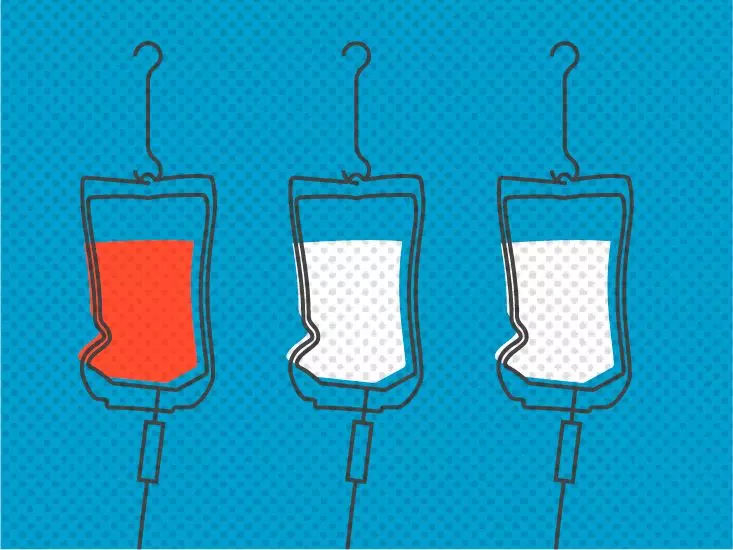Abecma (idecabtagene vicleucel) stands as a beacon of hope for many adults grappling with multiple myeloma, a complex and often challenging blood cancer. As a CAR T-cell therapy, it represents a novel approach aimed specifically at patients whose diseases have proved stubborn against traditional treatments. However, while Abecma may offer profound benefits, there are critical intricacies surrounding its interactions with medications, supplements, and even vaccines, which every patient and caregiver should be keenly aware of.
What is Abecma and Who is it For?
Abecma is unique in its mechanism. It harnesses the power of the patient’s immune system by re-engineering T-cells to better target myeloma cells. This infusion therapy is tailored for individuals diagnosed with refractory or relapsed multiple myeloma—meaning it is prescribed only when previous treatments have either failed or ceased to yield positive results. The significance of this selectivity cannot be overstated, as it underscores the necessity for careful consideration and planning in the management of such a serious condition.
Before embarking on the Abecma treatment journey, patients must have an open dialogue with their healthcare professionals about previous treatments and their experiences. This proactive communication can pave the way for optimal outcomes by ensuring the treatment is both appropriate and timely.
The Importance of Managing Interactions
One of the most pressing concerns with any medication is the potential for interactions. The information surrounding Abecma reveals that while no significant interactions with other medications have been documented, the absence of reported interactions does not guarantee they do not exist. Each person’s body reacts differently, and many factors can influence how a medication performs, including individual health circumstances and pre-existing conditions.
Patients should be transparent about all medications they are currently taking—prescription and over-the-counter—as well as any supplements or herbal products. This comprehensive disclosure safeguards against unforeseen complications that could arise from interacting substances. Simply put, when it comes to treatments like Abecma, vigilance is key.
Alcohol and Its Potential Impact
While research indicates that Abecma does not present known interactions with alcohol, this does not obviate the necessity for caution. Alcohol consumption can exacerbate certain side effects, such as nausea, dizziness, and headaches. As many patients undergoing such treatments may already be vulnerable to these symptoms, limiting alcohol intake may be prudent. Engaging in an open discussion with a healthcare professional regarding alcohol consumption during treatment is essential, as a personalized recommendation can significantly enhance a patient’s treatment experience.
The Interplay with Vaccines and Lab Tests
A particularly concerning aspect of Abecma treatment is its interaction with live vaccines. As Abecma works by modulating the immune system to combat multiple myeloma, the administration of live vaccines—for illnesses that are typically manageable in healthy individuals—could pose a risk. Patients must understand that their weakened immune defenses may not only render live vaccinations less effective but could also expose them to the very illnesses the vaccines aim to prevent. This underscores the importance of thorough pre-treatment consultations regarding vaccination needs.
Furthermore, patients should be aware that Abecma can interfere with certain laboratory tests, specifically those checking for conditions like HIV. A false-positive result may occur, which can lead to confusion and unnecessary distress. Patients must communicate their Abecma treatment to their healthcare providers when undergoing such tests, enabling the use of alternative testing methods if necessary.
Considering Cannabis and Complementary Therapies
The integration of cannabis with medical treatments brings another layer of complexity to patient management. While there is no established interaction between cannabis—or its derivative, CBD—and Abecma, the broader implications of cannabis use in treatment regimens may affect patient adherence and overall treatment outcomes. The legalization of cannabis varies significantly by jurisdiction, and patients should consult with healthcare professionals when considering combining these substances with their treatment plans.
It is vital that patients engaged in the Abecma treatment process arm themselves with knowledge and resources. Building a comprehensive medication list, consulting healthcare professionals, and understanding the nuances of their treatment can enhance patient agency, ultimately leading to better health outcomes.
In the challenging landscape of multiple myeloma, Abecma can provide a pathway toward hope. But this journey demands diligence and communication to navigate the complexities in order to harness the full potential that this revolutionary treatment offers.

